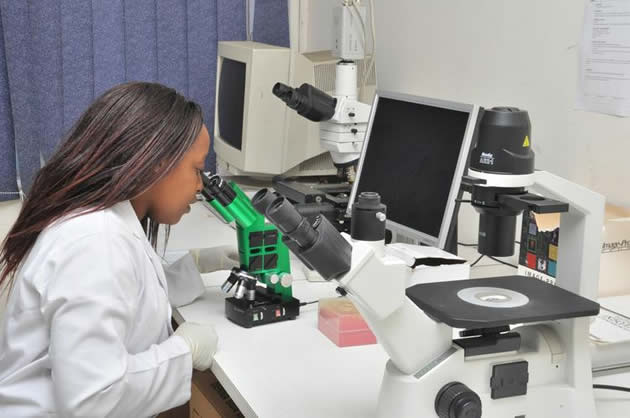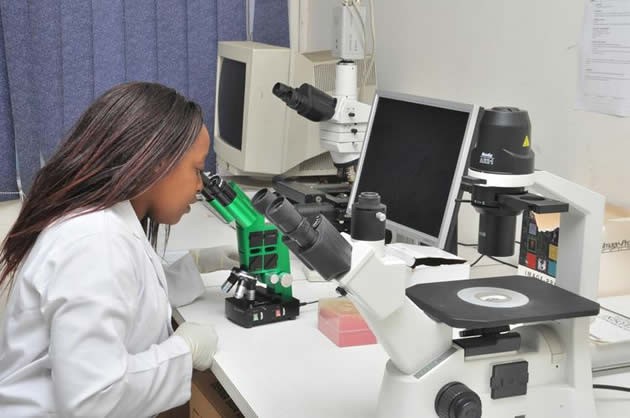DNA more than paternity testing

Roselyne Sachiti Features Editor
WHEN most people hear of the word DNA (deoxyribonucleic acid), all they think of is paternity testing, which is usually requested following lack of trust in a relationship, cheating allegations and inheritance claims, among other things.
A number of men who are not willing to pay maintenance for the upkeep of children usually sired out of wedlock have requested DNA testing on their alleged kids just to be sure they are taking care of their own.
Women , too, have used paternity testing to prove beyond reasonable doubt that certain men sired their kids.
Popular Sungura musician Alick Macheso denied paternity of two children he sired with Tafadzwa Mapako and requested DNA tests to be conducted.
The results, which he still dismissed, came back saying he was indeed the father of the children. Paternity testing is one of the reasons DNA has become popular in Zimbabwe.
Paternity testing costs around $500 in Zimbabwe, although other types of DNA testing cost more. There are also many reasons why knowing the paternity of a child is important. Most important is a family’s medical history. Such information can help to give practitioners clues about medical conditions that may run in a family. In particular, it can help identify people with a higher than usual chance of common disorders.
These include heart disease, high blood pressure, stroke, certain cancers and diabetes.
However, DNA testing is broad and has helped identify accident victims, resolve rape cases, determine chieftainship claims and solve crime.
African Institute of Biomedical Science and Technology (AiBST) president and chief scientific officer Professor Collen Masimirembwa is one of Zimbabwe’s “medical detectives”.
He told The Herald Review that conducting DNA testing in Zimbabwe had proven more reliable and cost-efficient for parties with puzzles to solve.
“There have been many accidents in Zimbabwe and all the time people had to send samples to South Africa. However, no one was in control of the quality of these things,” Prof Masimirembwa said.
“So we said, ‘Why do we not use our technology platform which we are using for medical research to offer a service which can help the police, the justice system and the public terms of kinship tests, who you are related to, missing relatives and indeed the very popular thing of paternity tests?’ That is how we came to the decision.”
He said his practice, based at Wilkins Hospital, came about gradually.
“The raising of awareness is regulated and provision of information is also regulated so that you do not appear to be encouraging people to come for these tests,” Prof Masimirembwa said.
He added: “Nevertheless, DNA testing should be viewed differently because it is not a medical condition as it has been viewed to be and so regulated to be. It is not.
“Regardless of the challenge, people have come to know, especially by word of mouth. So we are now getting on average 10 to 20 people coming to our laboratory every Monday.”
He said they do other small cases for the police or cases of people who die in accidents where identification is difficult to establish by physical features.
“I can say that we have done almost 300 paternity cases. We are beginning to have a picture of how many cases in which people are wrongly accused of fathering children but the number is not as high as the media has portrayed it to be before,” Prof Masimirembwa said.
He said reports in the media based their conclusions on a small number, whereas for a statistical conclusion, a significant number of people is required to have tested.
“So we need more samples than 300 people and over more time before we can start to throw around statistics,” he said.
Since DNA can also be used to solve crime, Prof Masimirembwa’s relationship with the police is important.
For example, he helped identify the charred bodies of 13 victims of the Chisumbanje accident in 2013.
“We are still building a relationship with the police. Traditionally forensic police lab would have been the one responsible for testing when the DNA testing was introduced worldwide but countries like the US have advanced to the level where private laboratories can assist forensic police labs,” Prof Masimirembwa said.
Internationally, private labs normally come where forensic police labs do not have the capacity to deal with the number of tests coming in.
“They do not have the scientific capacity to address some of the complex cases and also do not have the space in terms of technological advancement,” Prof Masimirembwa said.
But in Zimbabwe, he added, the thinking is still in the traditional mode whereby the work is exclusively assigned to the police.
“But the Home Affairs and the Health and Child Welfare ministries were very quick to realise that because of limited resources we need to work with the private labs.
“Now we have started discussing on which way to go forward. So now we still have few cases coming in because the issue is still who has to pay for it,” Prof Masimirembwa said.
“Internationally, other governments already have budgets for crime and investigation. In Zimbabwe, we do not have a budget yet. So the person who has the capacity to pay can influence the police to have their samples done at a private lab,” he said.
Prof Masimirembwa pointed out that the cost could be quite expensive for individuals hence the need for police to have a look at budgetary issues around DNA testing.
He added that stakeholders were in discussion with the Ministry of Justice, Legal and Parliamentary Affairs towards the definitive stipulation of the role of DNA evidence in the courts.
“Previously, DNA testing for court cases has been considered medical evidence. But now they have been efforts to revise DNA instruments to actually define clearly the unique role of DNA in identifying individuals at the crime scene or any other application so we are also contributing in that way,” he said.
“Relevant departments understood as soon as we came up with DNA testing that we need to work together.
“So, from the crime investigation point of view to the legal and justice system, we are working towards an effective mechanism,” he added.
“I think that is also time we started educating our society because the successful use of DNA also depends on the availability of a sample which you can analyse.
“So, it goes back to the question of how, for example, a person should react or act when they are a victim of rape to ensure that they do not destroy or lose important evidence,” Prof Masimirembwa said.
He said there was need to educate people to quickly go to a rape clinic in the case of rape.
“We have many such institutions which are good at that in Zimbabwe, including a clinic for children at Harare Hospital and one for adults at Parirenyatwa,” Prof Masimirembwa said.
“There are ways they use to take samples, for example, of vaginal swamp.
“Evidence can be collected if there is a struggle and the victim manages to scratch and get some skin or blood from the perpetrator or the hairs of the perpetrator are left on their body,” he said.
“All these things need to be picked but right now I am not sure that there is awareness among people.
“Therefore as indicated earlier, it could be that a sample can be taken from anyone who will have been suspected of this crime and then you compare the DNA sample.
“If there is no match, you cannot go with this person and if you have a problem with profiling you can keep it in a database so that you keep searching and if you can get a hint you can then go back to the database and pick that person,” he said.
Prof Masimirembwa said Zimbabwe does not have a database because previously such technology had not been established but now the technology is there, hence the need to build one.








Comments